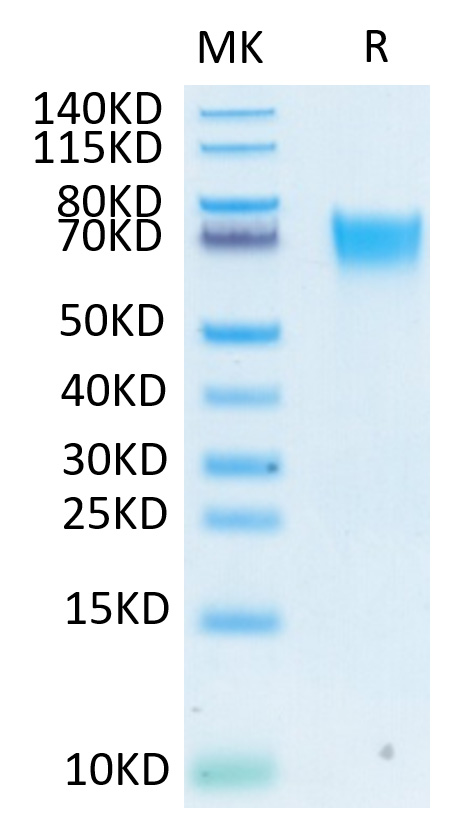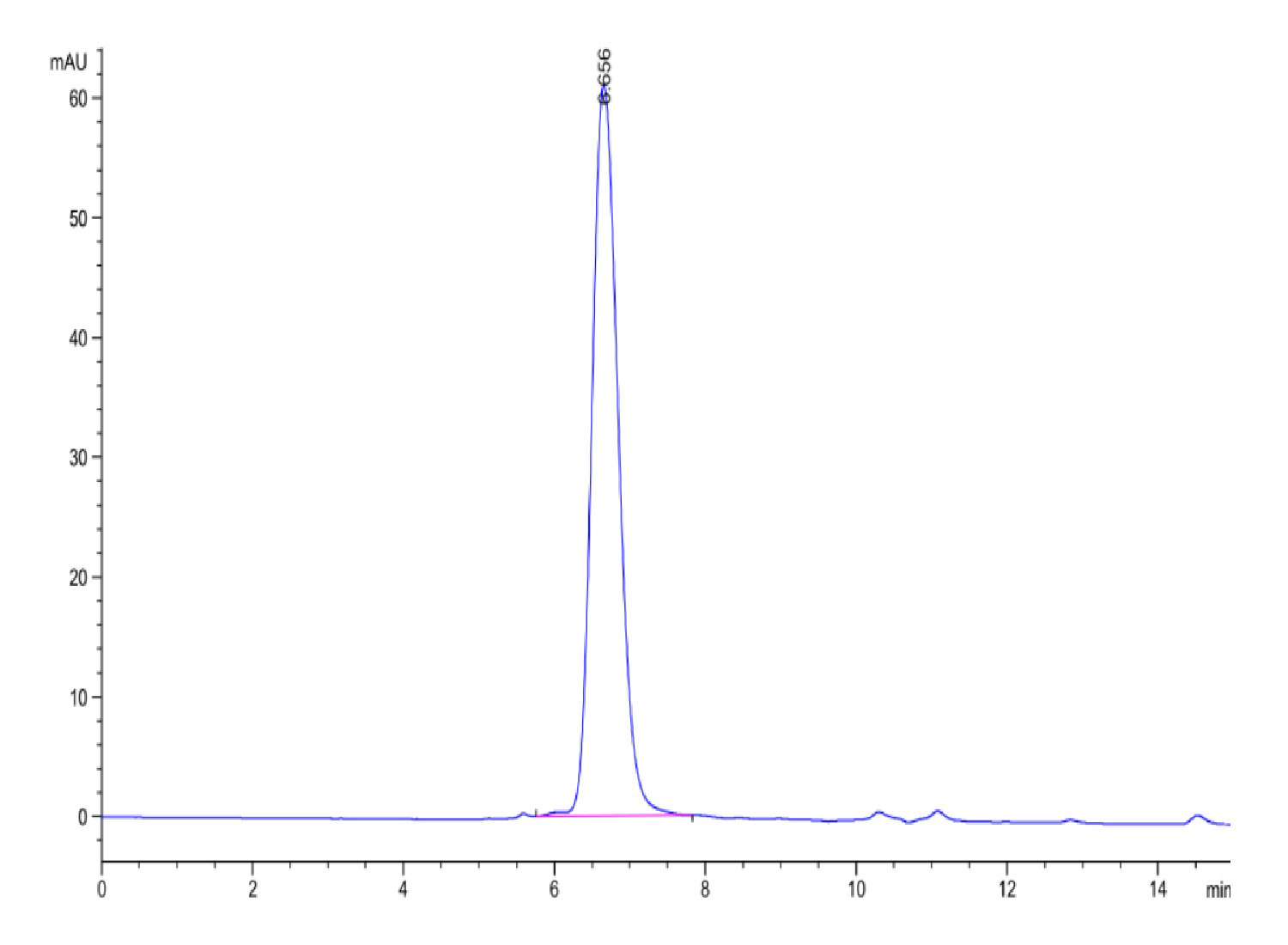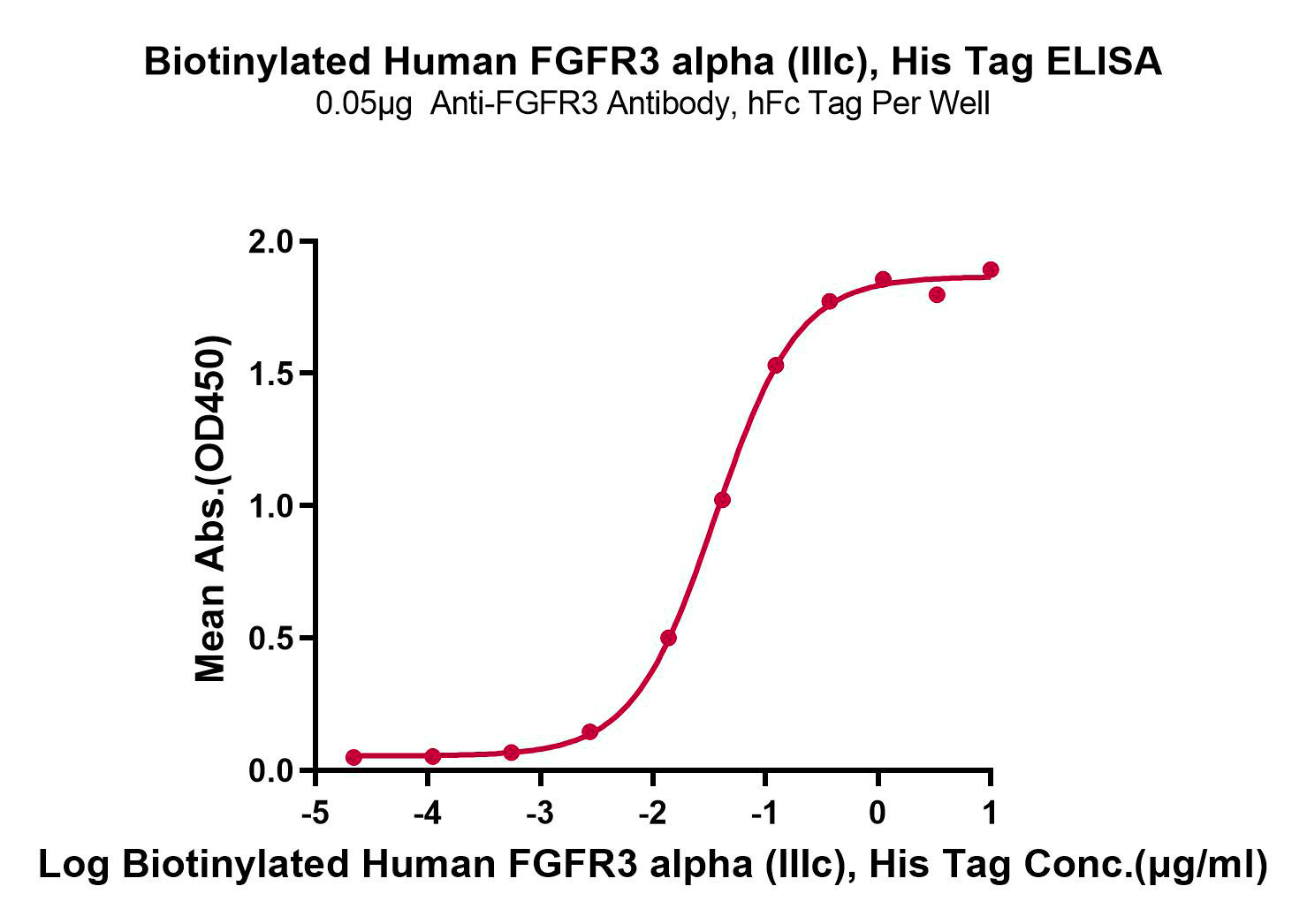Description
Biotinylated Recombinant Human FGFR-3 alpha (IIIb)/CD333 Protein
The Biotinylated Recombinant Human FGFR-3 alpha (IIIb)/CD333 Protein is a biologically active recombinant protein that plays a significant role in various cellular processes and signaling pathways in human biology. This protein is widely employed in immunological research, cell biology studies, protein-protein interaction analyses, and therapeutic development, providing researchers with a reliable tool for investigating Biotinylated FGFR-3 alpha (IIIb)/CD333 function and its implications in health and disease.
This product (SKU: RPCB0613) is produced using advanced expression systems and features a C-His&Avi tag for convenient detection and purification. The protein exhibits a calculated molecular weight of 41.4 kDa with an observed molecular weight of 65-75 kDa under denaturing conditions, achieving ≥ 95 % as determined by SDS-PAGE;≥ 95 % as determined by HPLC., ensuring exceptional quality and consistency for research applications.
Key Features
| High Purity by Affinity Chromatography | |
| Mammalian & Bacterial Expression Systems | |
| High lot-to-lot consistency via strict QC |
| Product Name: | Biotinylated Recombinant Human FGFR-3 alpha (IIIb)/CD333 Protein |
| SKU: | RPCB0613 |
| Size: | 100 μg |
| Reactivity: | Human |
| Synonyms: | ACH, CD333, CEK, CEK2, EC 2.7.10, FGF R3, FGFR3, HSFGFR3EX, JTK4 |
| Tag: | C-His&Avi |
| Calculated MW: | 41.4 kDa |
| Observed MW: | 65-75 kDa |
| Gene ID: | 2261 |
| Protein Description: | High quality, high purity and low endotoxin recombinant Biotinylated Recombinant Human FGFR-3 alpha (IIIb)/CD333 Protein (RPCB0613), tested reactivity in HEK293 cells and has been validated in SDS-PAGE.100% guaranteed. |
| Endotoxin: | < 1 EU/μg of the protein by LAL method. |
| Purity: | ≥ 95 % as determined by SDS-PAGE;≥ 95 % as determined by HPLC. |
| Formulation: | Lyophilized from 0.22 μm filtered solution in PBS (pH 7.4). Normally 8% trehalose is added as protectant before lyophilization. |
| Reconstitution: | Centrifuge the vial before opening. Reconstitute to a concentration of 0.1-0.5 mg/mL in sterile distilled water. Avoid vortex or vigorously pipetting the protein. For long term storage, it is recommended to add a carrier protein or stablizer (e.g. 0.1% BSA, 5% HSA, 10% FBS or 5% Trehalose), and aliquot the reconstituted protein solution to minimize free-thaw cycles. |
| Storage: | Store at -20℃.Store the lyophilized protein at -20℃ to -80 ℃ up to 1 year from the date of receipt. After reconstitution, the protein solution is stable at -20℃ for 3 months, at 2-8℃ for up to 1 week. |
Four distinct genes encoding closely related FGF receptors, FGF R1-4, are known. All four genes for FGF Rs encode proteins with an N-terminal signal peptide, three immunoglobulin (Ig)-like domains, an acid?box region containing a run of acidic residues between the IgI and IgII domains, a transmembrane domain and the split tyrosine-kinase domain.FGFR3 is tyrosine-protein kinase that acts as cell-surface receptor for fibroblast growth factors and plays an essential role in the regulation of cell proliferation, differentiation and apoptosis. Plays an essential role in the regulation of chondrocyte differentiation, proliferation and apoptosis, and is required for normal skeleton development. Regulates both osteogenesis and postnatal bone mineralization by osteoblasts.









